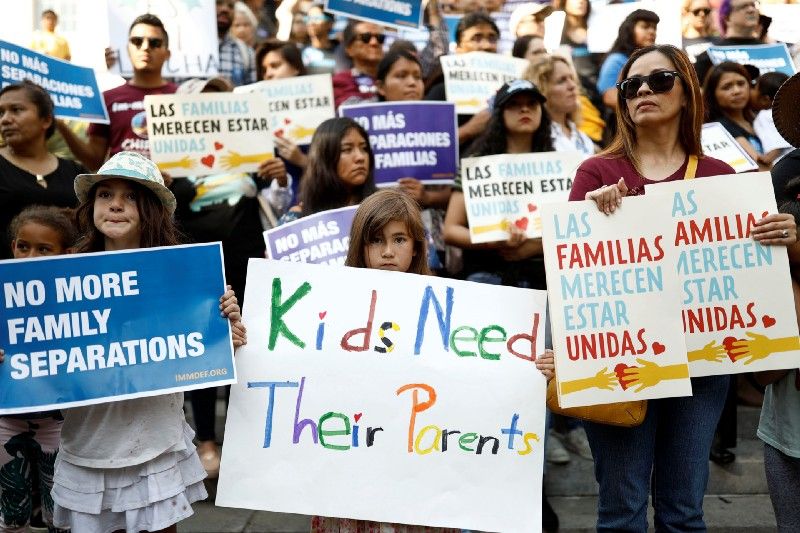June 22, 2018
The separation of children of illegal immigrants from their families at the US border has dominated news in the US this week. It appeared on Wednesday that an intense public backlash had forced President Trump to change direction. But the executive order he signed this week leaves US border policy in a state of confusion and does nothing to reunite the 2,300+ children already in US custody with their families.
As Alex Kliment and Kevin Allison noted on Wednesday, polling reveals a sharp divide between Republicans and all other Americans on the emotive subject of illegal immigrants and their children.
A survey published this week by Quinnipiac University found that “American voters oppose 66–27 percent the policy of separating children and parents when families illegally cross the border into America.” That includes 91 percent of Democrats and 68 percent of independents. But Republican voters support the separation policy by a margin of 55–35 percent.
Context: A generation ago, as elections approached, US politicians competed with opponents from the other political party for the support of “centrist” voters, those less motivated by ideology of the left or right. That practice was dying before President Trump ran for office. It now appears all but dead.
Research suggests that Americans are increasingly unwilling to marry, make friends with, or even live near those who don’t share their political views. In a bitterly divided country, one where voters get much of their news and views from cable TV channels and websites that align with their biases, and where more than 40 percent of eligible voters didn’t show up to cast a ballot in 2016, politicians worry much more about motivating their supporters to actually vote than about winning support from the political center.
Bottom line: On race relations, climate change, tariffs imposed on allies, a trade war with China, and immigration policy, this political logic can persuade President Trump to actively support a policy that’s broadly unpopular. He’s betting that his voters care more about a particular issue than other voters do.
Whether he’s right or wrong, expect more of the same as November’s elections approach.
More For You
Mastercard Economic Institute's Outlook 2026 explores the forces redefining global business. Tariffs, technology, and transformation define an adaptive economy for the year ahead. Expect moderate growth amid easing inflation, evolving fiscal policies, and rapid AI adoption, driving productivity. Digital transformation for SMEs and shifts in trade and consumer behavior will shape strategies worldwide. Stay ahead with insights to help navigate complexity and seize emerging opportunities. Learn more here.
Most Popular
Think you know what's going on around the world? Here's your chance to prove it.
Miami Mayor-elect Eileen Higgins points as she thanks her staff and supporters on the night of the general election, on Tuesday, Nov. 4, 2025.
Carl Juste/Miami Herald/TNS/ABACAPRESS.COM
A Democrat won Miami’s mayoral race for the first time in nearly 30 years. The Republican defeat will ring some alarms for the party – and their support among Latino voters.
Women work in the plastic container assembly area inside the El Oso shoe polish factory, located in Mexico City, Mexico, in its new facilities, after officers from the Secretariat of Citizen Security and staff from the Benito Juarez mayor's office arbitrarily and violently remove their supplies, raw materials, machinery, and work tools on January 17 of this year following a coordinated operation stemming from a private dispute. On August 27, 2025.
Photo by Gerardo Vieyra/NurPhoto
50: Mexico’s President Claudia Sheinbaum is taking a page out of US President Donald Trump’s book, implementing up to a 50% tariff on more than 1,400 products in a bid to boost domestic production.
© 2025 GZERO Media. All Rights Reserved | A Eurasia Group media company.
